So, I first noted odd behavior in this here post (https://unmethours.com/question/26345/openstudio-220-vs-1140-airloop/), but thought it might be necessary to make this more prominent and give it another, clearer and more dedicated post.
Basically, I am in the process of upgrading from OpenStudio 1.14.0 & EnergyPlus 8.6.0 to OpenStudio 2.2.0 & EnergyPlus 8.7.0. I am looking at a Proposed Building with Air-Cooled Chillers (ACC), Air Handling Units (AHU) and Variable Air Volume (VAV) terminals, and a Reference Building with Roof-Top Units (RTU) and Fan-Powered Box (FPB) terminals. For each, I opened the 1.14.0 .OSM file in OpenStudio 2.2.0 and then saved it as a 2.2.0 .OSM file from there. No other changes were made!
As it turns out, the 2.2.0 proposed building has a slightly different EUI and greatly different unmet hours from those of the 1.14.0 proposed building, even though they should be identical. The difference is even more stark when one looks at mixed air and outdoor air flows for one of the AHU, as well as setpoints and temperature for one of the VAV. This is shown in the images below. Note how the 2.2.0 version cannot even maintain setpoint, even though the equipment summary (i.e. equipment size) is identical for the 1.14.0 and 2.2.0 versions.
A) Proposed Mixed and Outdoor Air
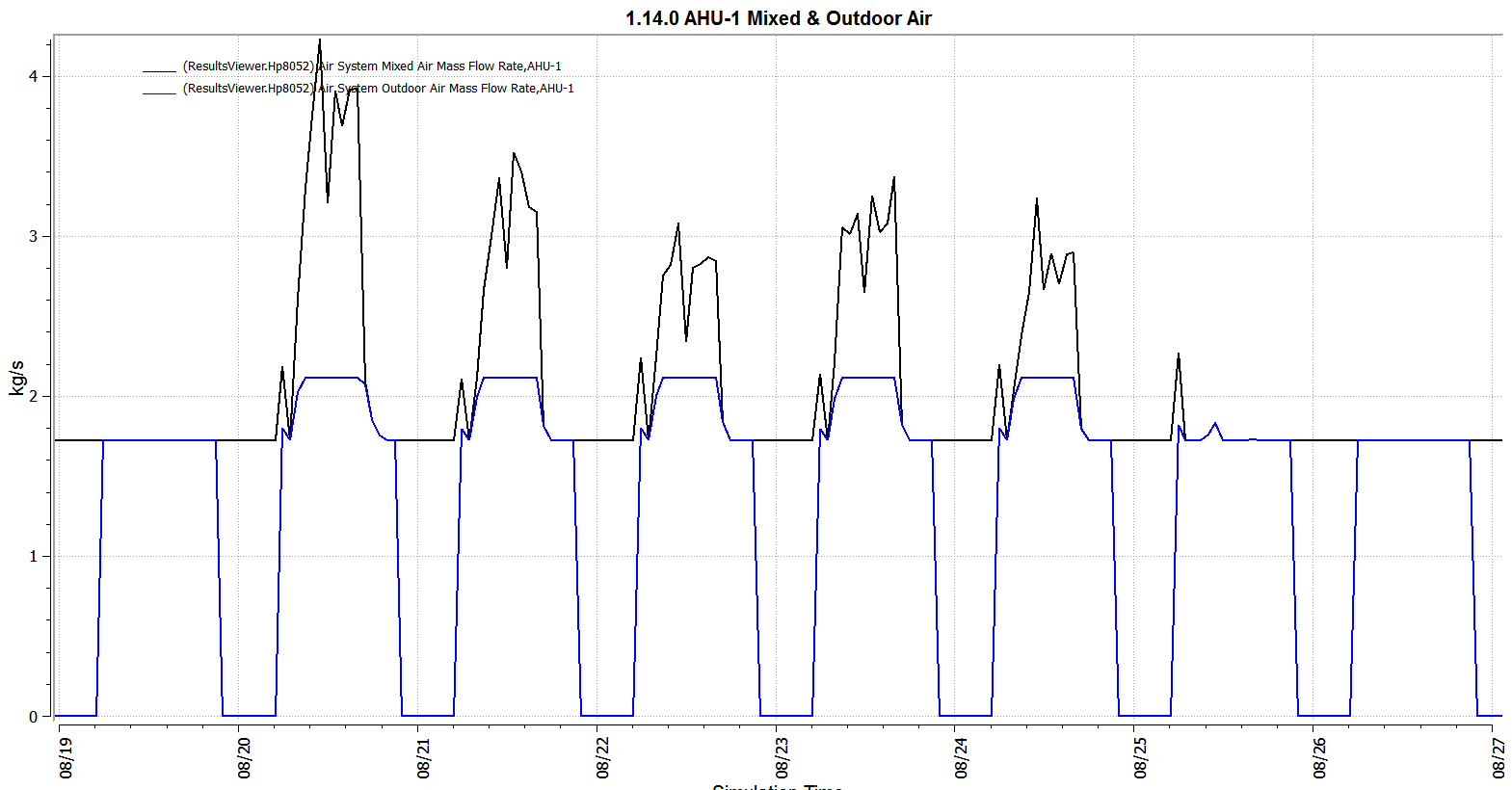 vs.
vs. 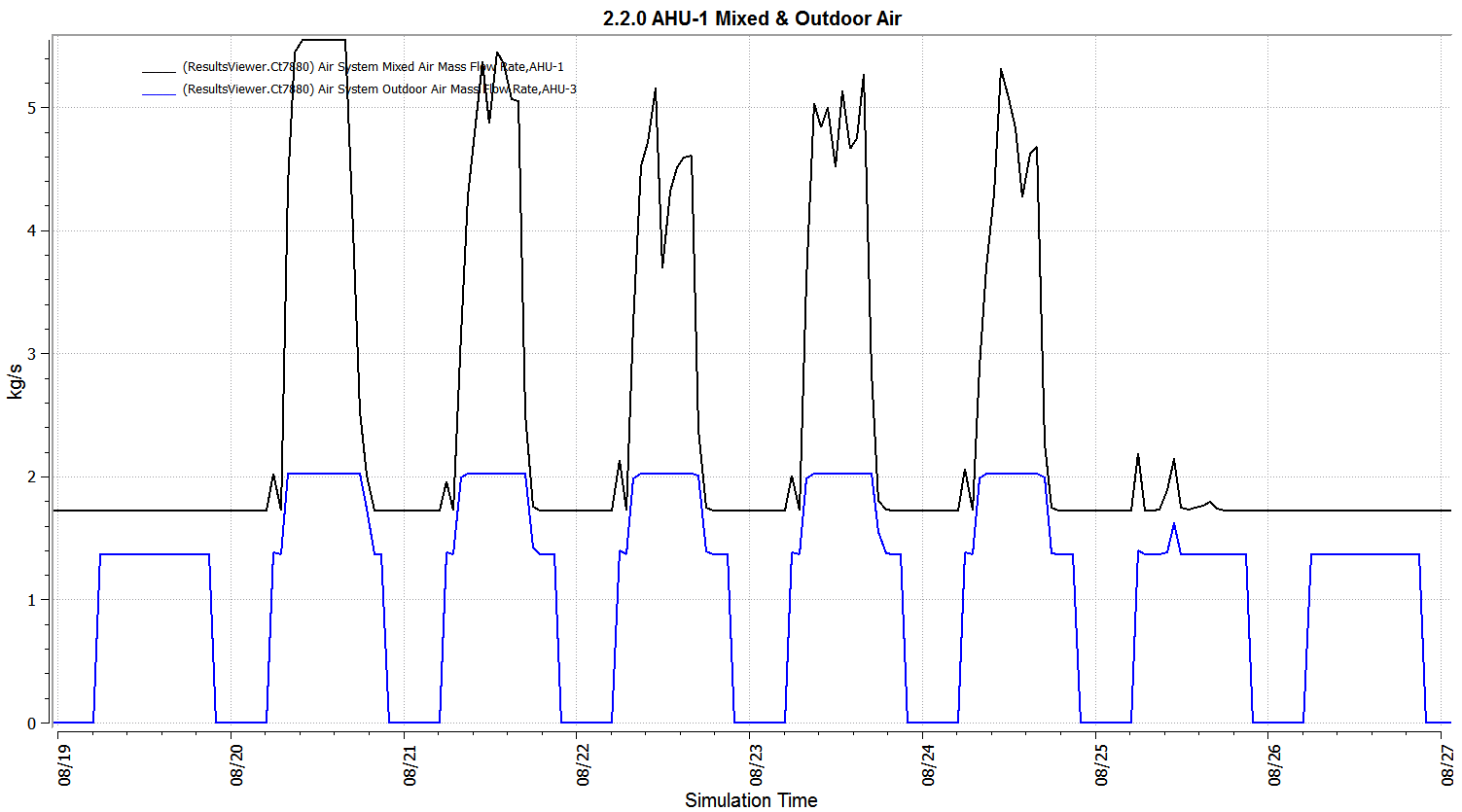
B) Proposed Setpoints and Temperature
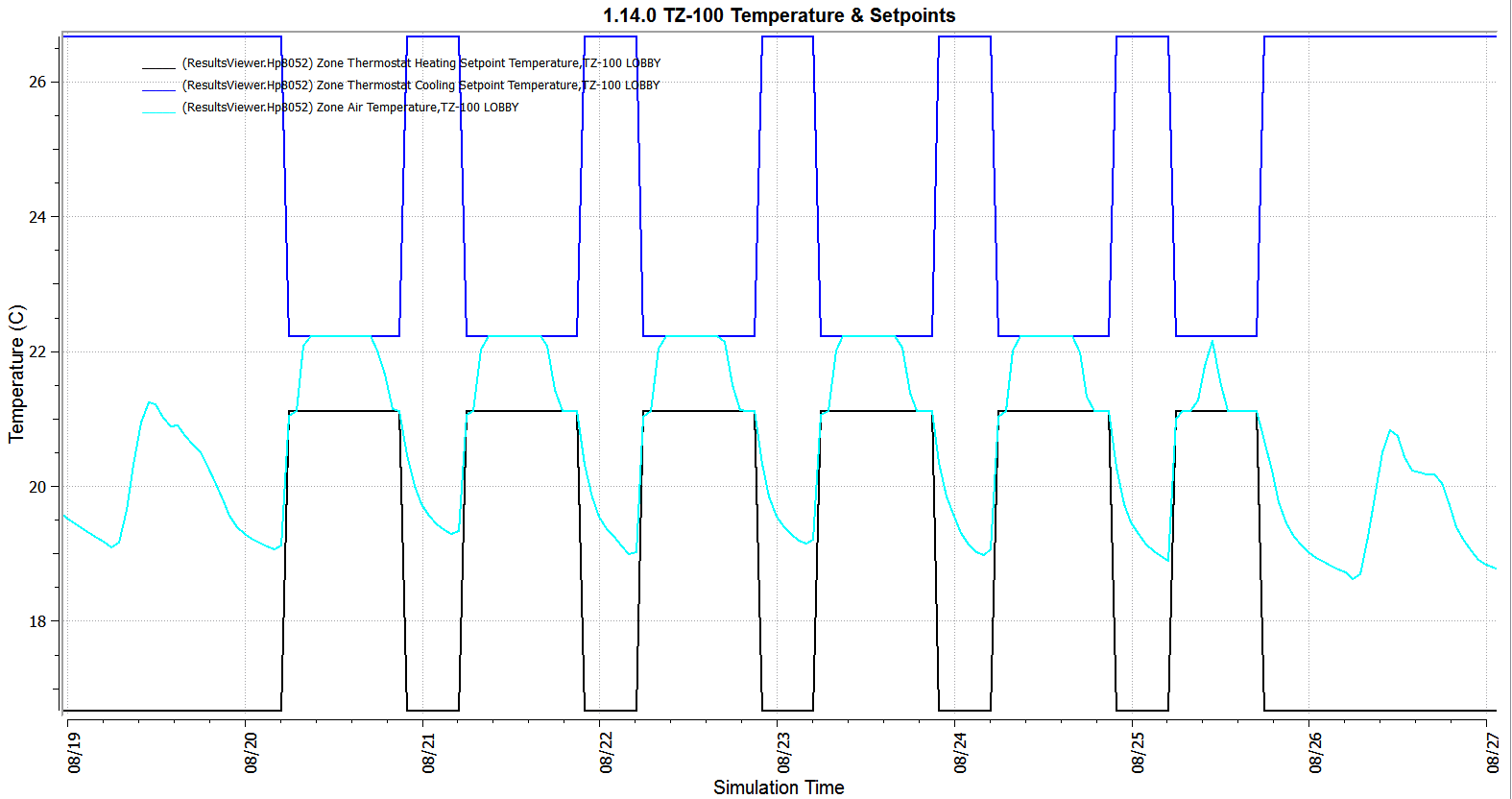 vs.
vs. 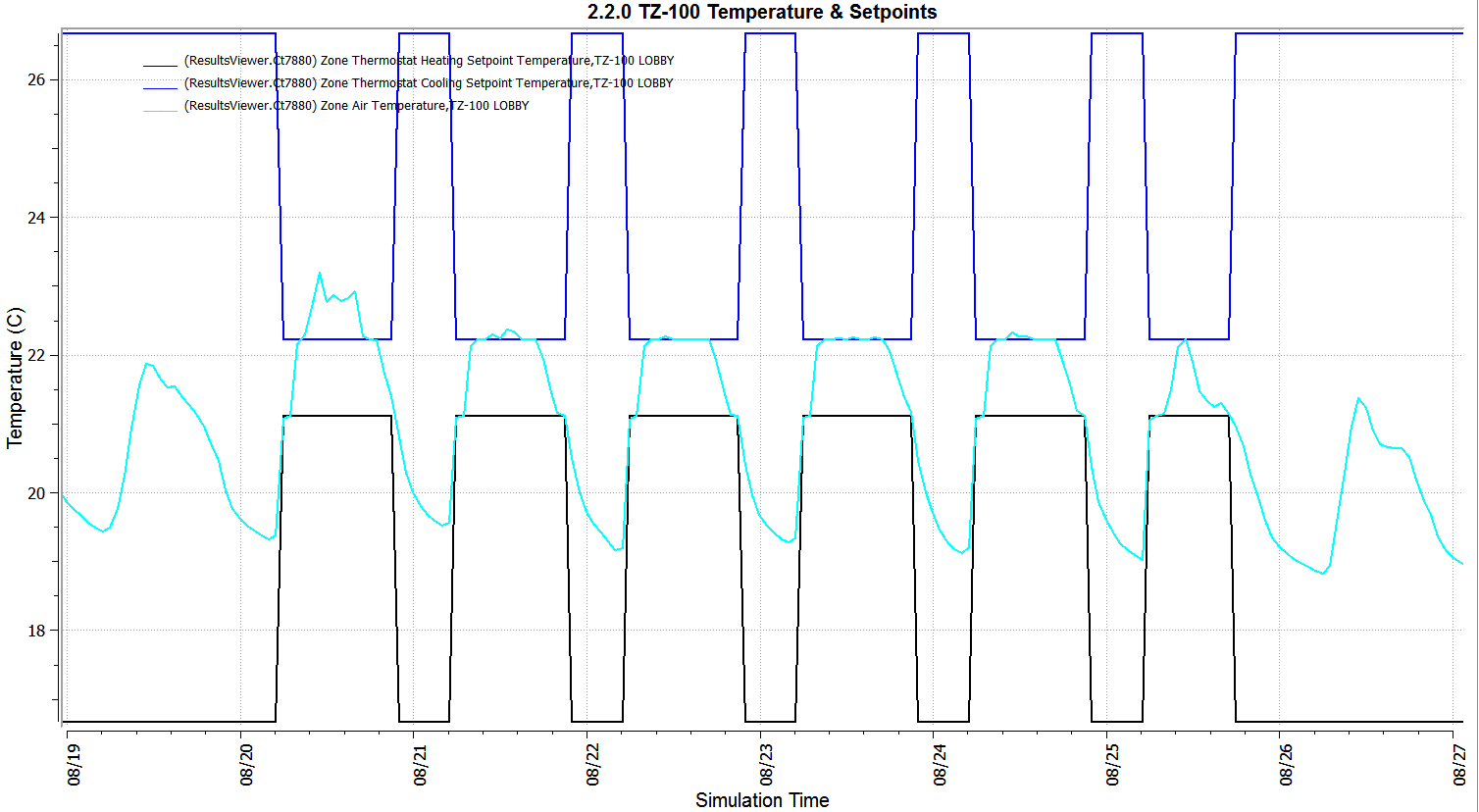
In contrast, the 2.2.0 reference building has identical performance to that of the 1.14.0 reference building, as I would expect. This is shown in the images below.
C) Reference Mixed and Outdoor Air
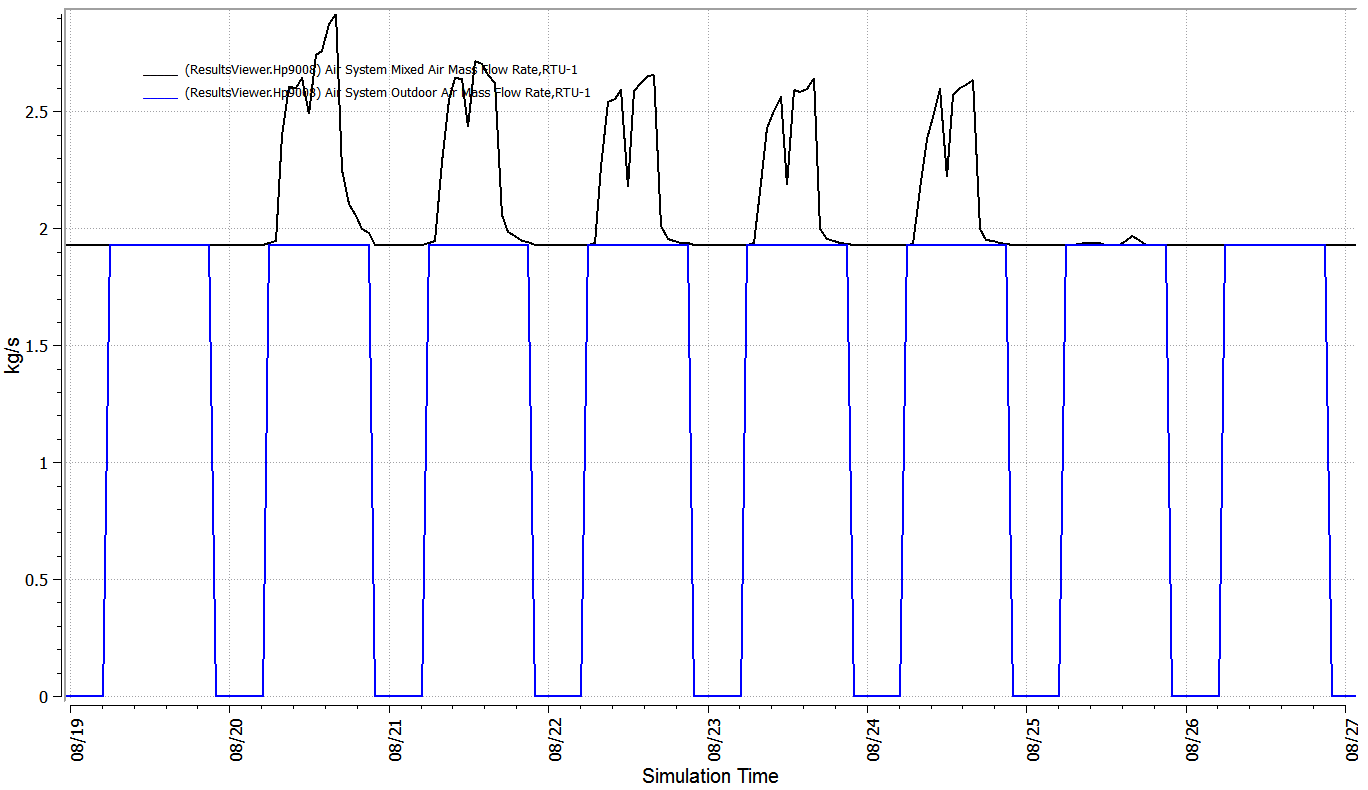 vs.
vs. 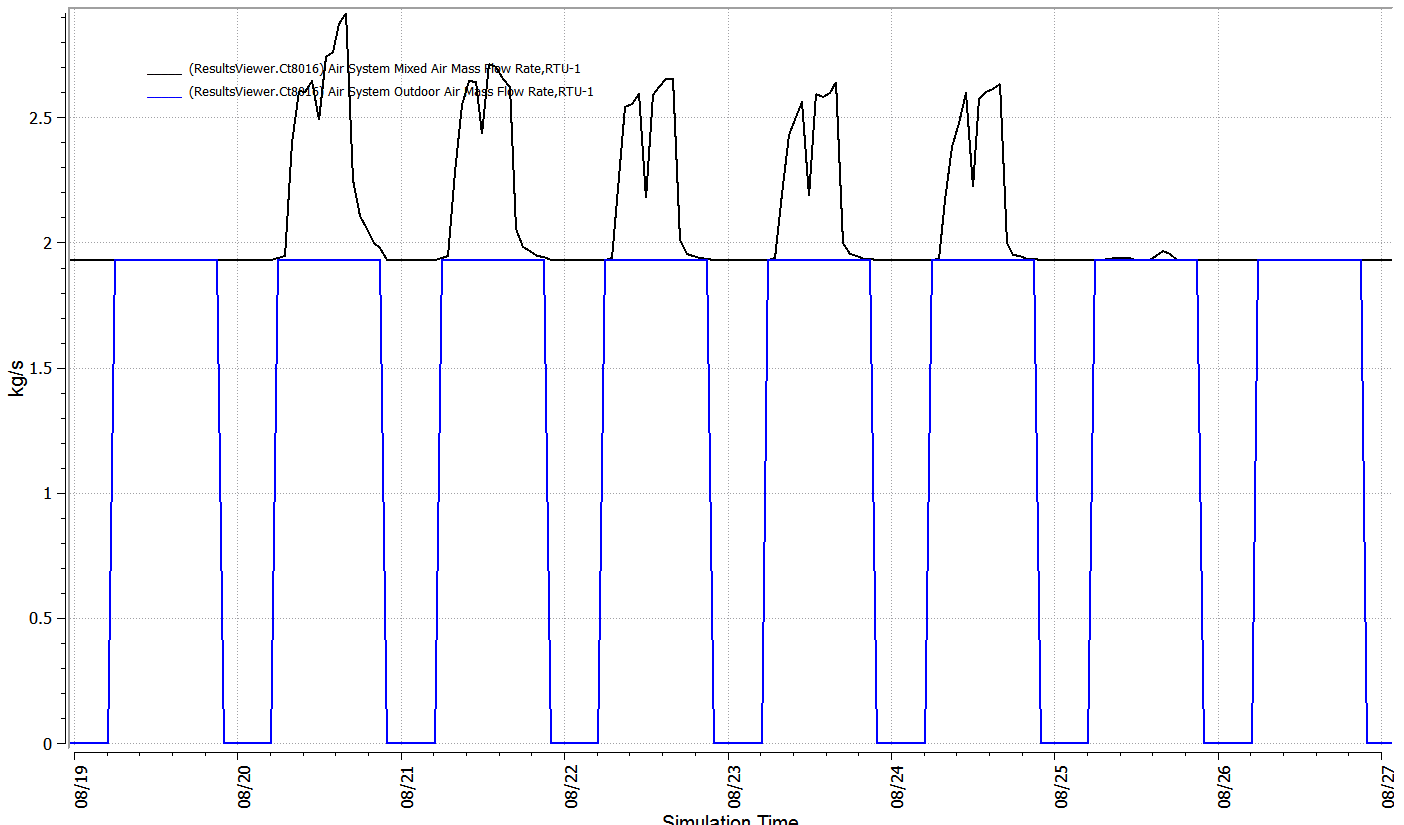
D) Reference Setpoints and Temperature
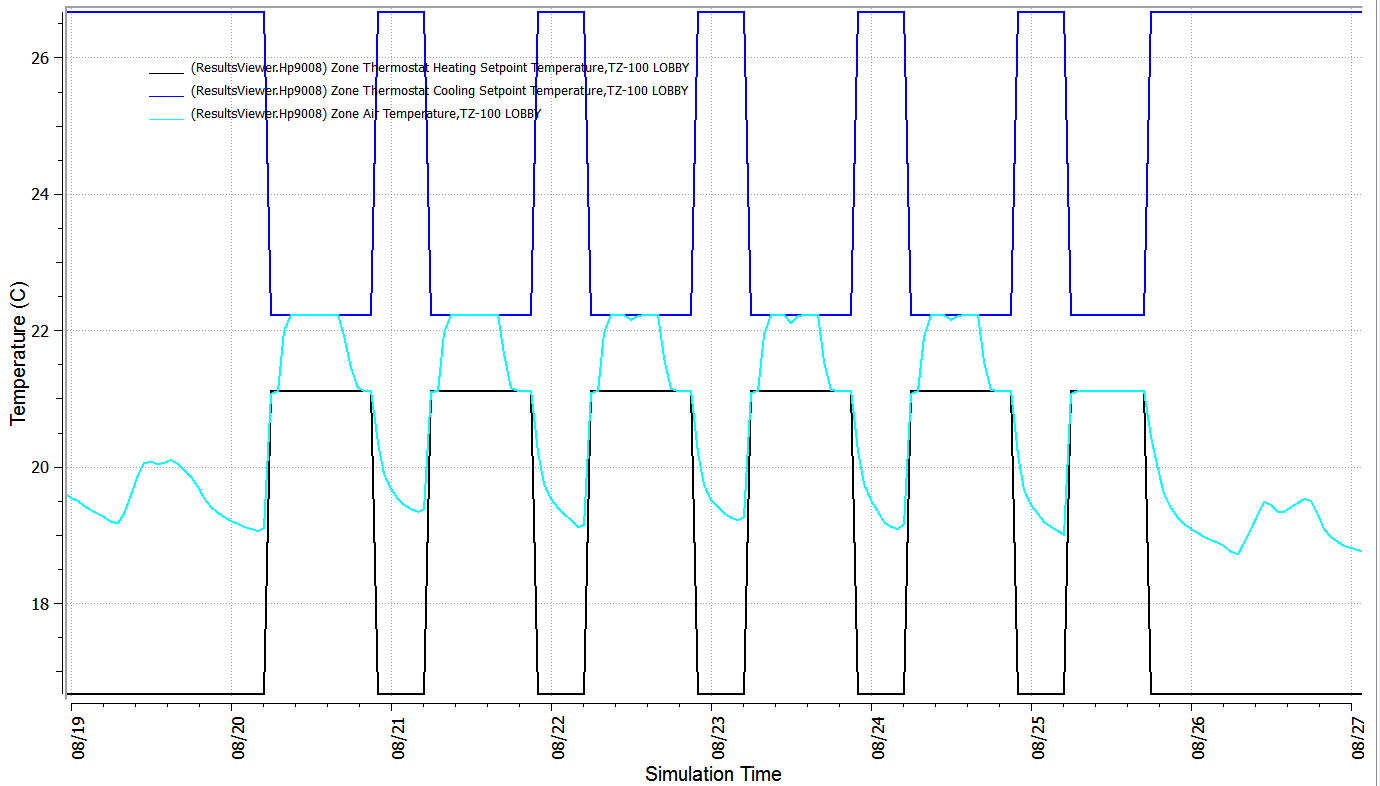 vs.
vs. 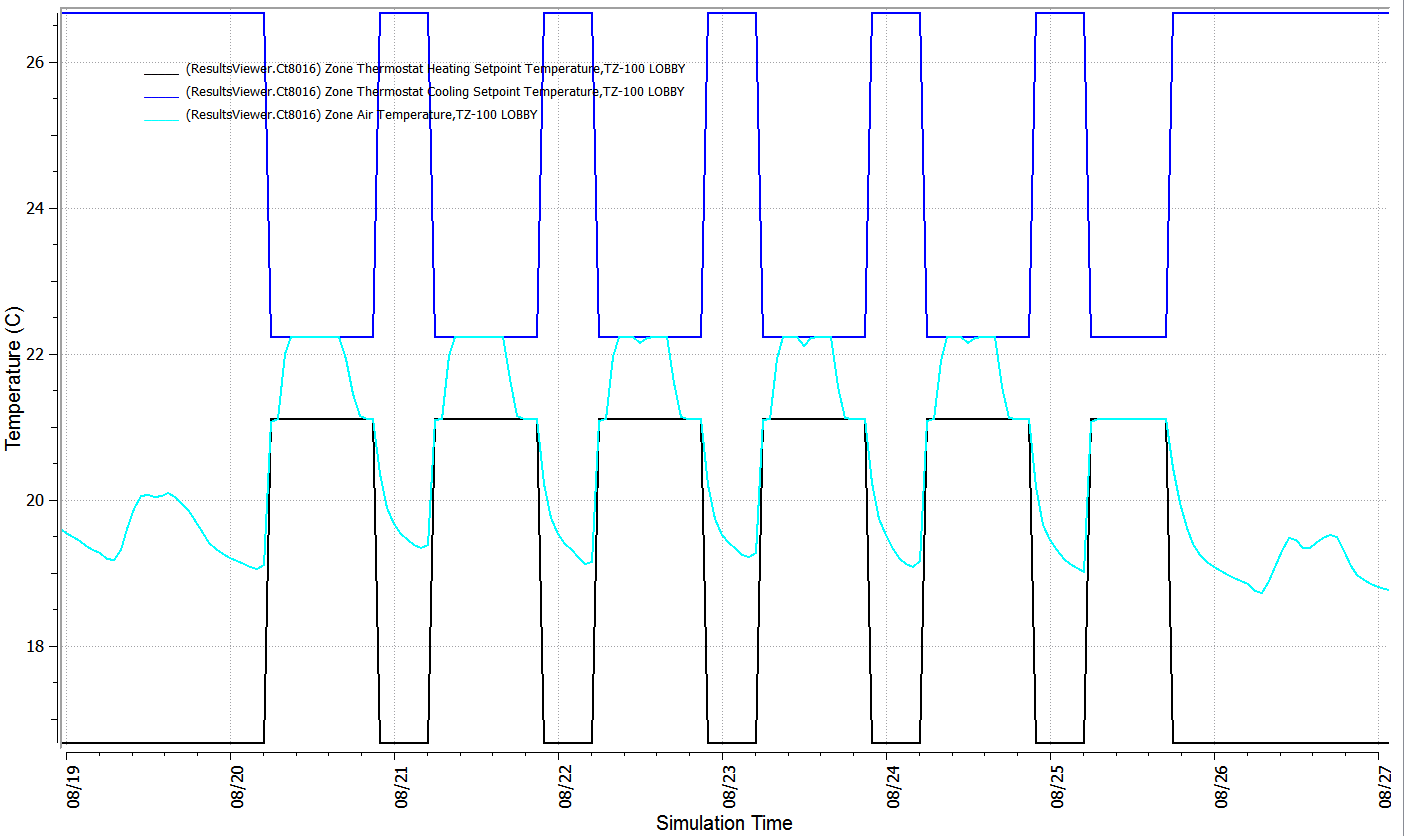
I find this rather striking and am worried about the accuracy of either 1.14.0/8.6.0 or 2.2.0/8.7.0 I should note that aside from a different type of HVAC system, the proposed building has hundreds of intricate shading surfaces where the reference building has none. I would appreciate any insight and can provide the .OSM files if need be. (Per the post mentioned at the beginning, I had already done an .IDF export file comparison, but found nothing striking).




